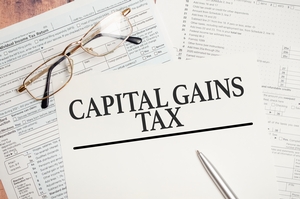In the United Kingdom, when an individual passes away, their estate goes through a legal process known as probate. During probate, the assets of the deceased are assessed and distributed in accordance with their will or intestacy laws.
Capital Gains Tax (CGT) is a tax levied on the profit generated from the sale or disposal of an asset that belongs to an estate. This includes scenarios such as gifting the item, exchanging it for another asset, or receiving compensation for it, such as through a sale or an insurance claim payout.
Assets that may be considered "chargeable assets" and subject to CGT during probate include valuable personal possessions, property, investments, art, selected antiques, fine jewellery and business assets. The tax is calculated based on the gain made from the sale of the asset, not the full amount. For instance, if an individual bought a piece of jewellery for £1,000 and sold it for £5,000, the amount which would be taxed is £4,000.
Assets with a limited life span of less than 50 years are termed “wasting assets” and are exempt from CGT. These items include machinery, vehicles, furniture, antique clocks and watches. This means that if the executor of an estate decides to sell a Rolex Submariner wristwatch which has significantly appreciated in value, it would be completely exempt from any CGT liability. Perhaps this contributes to the increasing appeal of investing in luxury timepieces, but we will delve into this another time!
The annual tax-free allowance is currently set at £3,000 in the UK, which can be used to reduce or eliminate any tax liability for the estate in the tax year leading up to the death and for two years after.
Estate representatives are responsible for determining and settling any Capital Gains Tax owed within 60 days of the completion of the estate. It is important to note that there are exemptions and reliefs that may apply during probate, such as the no gain/no loss rule for transfers between spouses or civil partners, or the appropriation of property through a beneficiary using a Deed of Appropriation.
Having a clear understanding of how Capital Gains Tax functions during probate is essential for ensuring compliance with tax laws and avoiding any potential liabilities. By being informed and proactive in addressing CGT obligations, individuals can navigate the probate process smoothly and efficiently. We always recommend that our clients seek professional advice from a reputable solicitor or tax expert who specialise in inheritance tax matters.
Should you require an accurate valuation of any art, antiques, jewellery or cherished possessions that form part of an estate, our team here at Wotton Auction Rooms would be delighted to assist.

